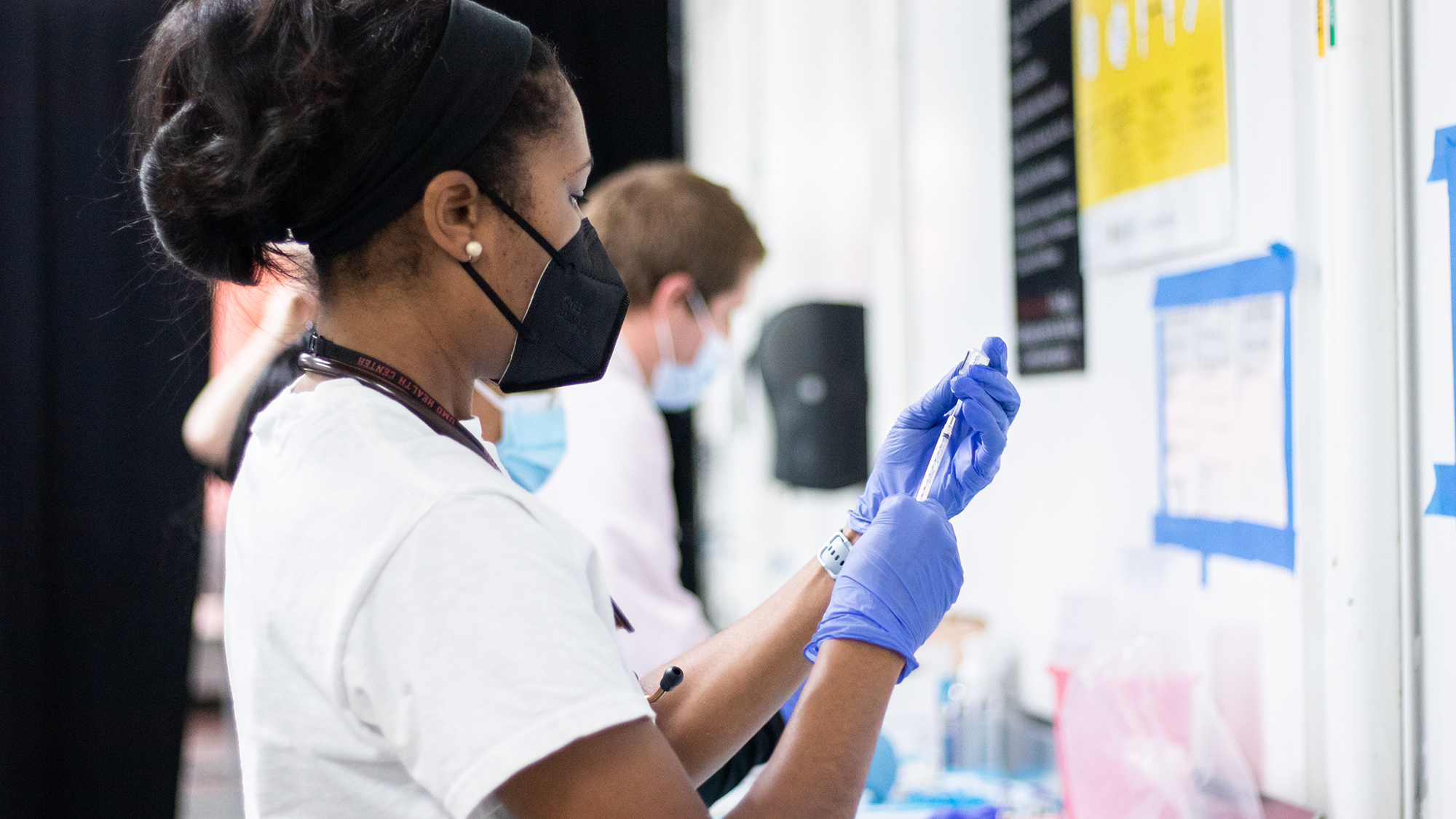By Daniel Zika
For The Diamondback
The University of Maryland Student Health Advisory Committee held a panel on Tuesday to answer common student questions about COVID-19 vaccinations.
The panel, which was composed of several local health officials, addressed both frequent misconceptions surrounding vaccinations and vaccinations’ impact on students.
[More than 60% of UMD community members on campus report receiving a COVID-19 vaccine dose]
Dr. David Mann, an epidemiologist at the Maryland Department of Health’s Office of Minority Health and Health Disparities, spoke about how he tested positive for COVID-19 last March.
“I was sicker with COVID than I ever was with any flu I ever had,” Mann said. “I don’t know how you stop this thing without a vaccine. It’s too transmissible, and it’s way too serious to let it run wild. So, there’s no other choice.”
The panelists agreed a vaccination mandate is a very complicated discussion because there are so many individual circumstances that must be accounted for. As of Tuesday, the University System of Maryland has not made an official announcement on whether there will be a vaccine mandate for students to return to campus for the fall semester.
“It’s kind of not unexpected that late high school, college-age students and young adults have the kind of social behaviors that tend to be high transmitters. And I think, if you want to have a normal college experience, it will be helpful to have the majority of the campus vaccinated,” Mann said. “I think we’ve got to be careful that mandates don’t exclude people who can’t get access, that’s a really important issue about equity.”
Dr. Nia Bodrick, the medical director of the Early Childhood Innovation Network affiliated with Children’s National Hospital in Washington, D.C., spoke about her work advocating for vaccine use in communities of color in D.C.
“I like to just give really good evidence based information. I will say that sometimes it helps for communities to have someone that looks like them to speak to them, and we are aware of that,” Bodrick said. “We’re just trying to meet communities where they are. And I think that we should be really careful when making assumptions about whether or not people want the vaccine.”
Panelists also tackled the difficult issue of the safety of vaccinations.
“We want people to get the vaccine that’s available to you, and they’re all effective at preventing serious illness and death which is really what we want. And actually the efficacy of all of them has been quite high again, with the pause of course that we have encountered recently with J&J,” said Dr. Spyridon Marinopoulos, this university’s health center director.
Even so, the Johnson & Johnson vaccine causing blood clots was extremely rare, Marinopoulos said.
Overall, the panelists emphasized that every individual must make their own choice about being vaccinated and stay informed with reliable sources of information.
“The fact that you or somebody else is not ready now doesn’t mean that we shouldn’t feel bad about it. I think all of us are going to be ready at a certain point after … finding information that is reliable and not relying on Facebook and Twitter,” said Dr. Christian Cornejo, the senior administrative medical director at Mary’s Center’s Adelphi site. “People will be ready when they are ready, it’s just a very difficult situation.”
[USM Board of Regents gives chancellor authority to determine mandatory vaccine policy]



